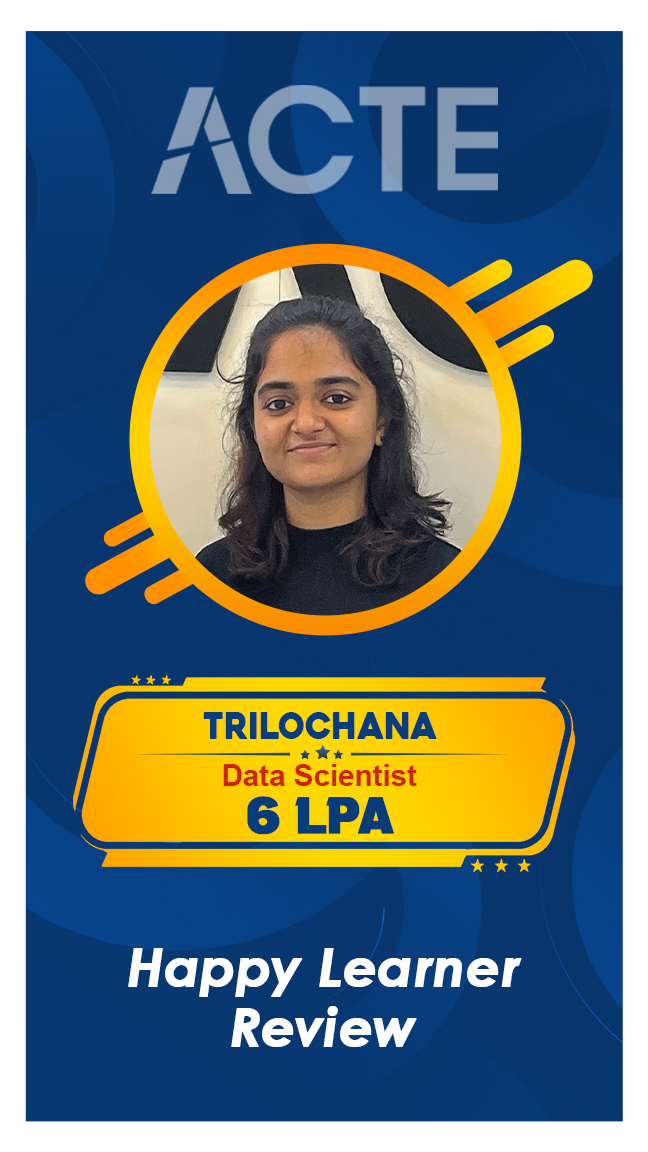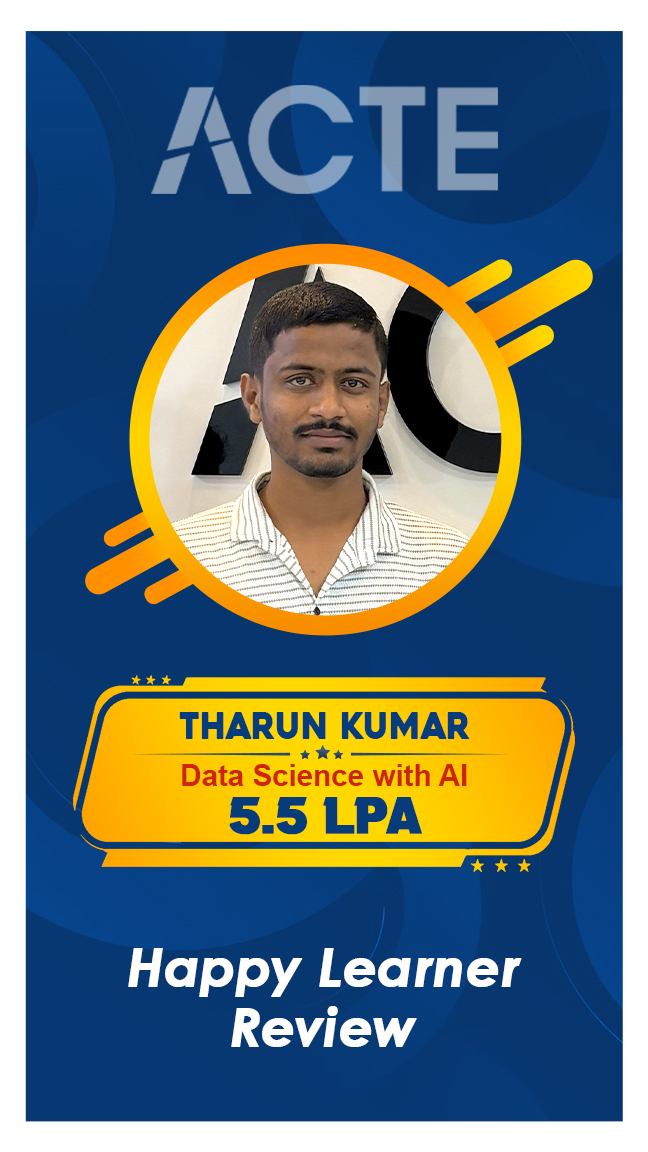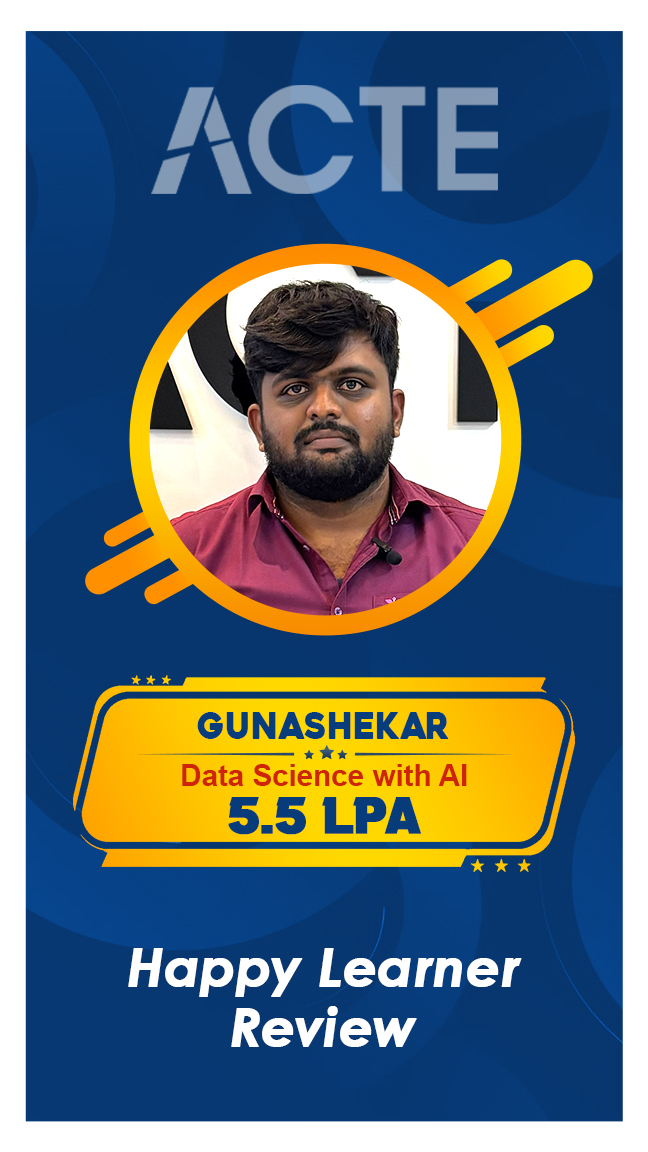German Course Overview
The German Language Online Course equip learners with essential language skills enabling to communicate effectively in various professional and personal settings. It covers key aspects such as grammar, vocabulary, pronunciation, reading, writing, speaking and listening, ensuring a comprehensive understanding of the language. With structured learning modules, students develop fluency through interactive exercises, role playin and real life conversations. Advanced training includes business German, industry-specific terminology, and cultural insights, preparing learners for careers in multinational companies, tourism, education and translation services. Modern German Language Online Training integrates AI driven tools, virtual classrooms, and gamification techniques, making learning more engaging and accessible German Language Certification Course programs validate proficiency.
Additional Info
Emerging Future Trends of the German Course
- AI Powered Language Learning Platforms:
Artificial Intelligence will revolutionize the way German is taught creating adaptive platforms that individualize learning experiences The platforms will review students progress, pinpoint areas of weakness and adjust lessons in real time. AI can mimic conversation, enhancing both listening and speaking abilities By providing automated feedback, learners will become more immersed in the language In the end this technology will make learning more efficient and available to a global population.
- Gamification of Language Learning:
The integration of game aspects into German language learning is becoming increasingly popular, making the learning process more fun and enjoyable. Gamification rewards learners with badges, challenge and levels to keep them motivated It creates a sense of regular practice by presenting learning as an adventure instead of a task Competitive features like leaderboards and achievements enhance student participation The trend seeks to merge entertainment with learning so that students retain more and are able to communicate fluently in German.
- Immersive Virtual Reality (VR) and Augmented Reality (AR):
The application of VR & AR will make learning German more engaging. These technologies have the ability to put students in simulated German speaking worlds, where they can apply language skills in actual situations AR has the ability to superimpose language cues in daily life, allowing users to learn vocabulary in real time VR simulations enable students to communicate with native speakers in authentic settings, building conversational fluency. The aim is to make language learning experiential and interactive.
- Mobile First Learning Tools:
With the rise of smartphones mobile first platforms are becoming the need of the hour for German language learning Such apps are optimized for on the go usage, providing bite sized lessons, quizzes and speech recognition capabilities They are more convenient to learn from enabling learners to practice German anywhere anytime Mobile apps also include gamification and AI to improve the learning process further This is an indication of the growing role of mobile technology in education today.
- Voice Recognition and Speech Analysis:
Voice recognition software will be crucial tool for improving fluency & pronunciation in German Speech analysis software will give students instant feedback on their pronunciation allowing them to adjust their intonation and accent. These systems will generate conversations with native speakers, allowing students to rehearse speaking without the need for a language partner As these technologies develop they'll be capable of replicating the nuances of human speech, bringing learning closer to reality This approach guarantees to close the gap between theoretical education and real speaking skills.
- Integration of Cultural Context:
German language learning will more and more concentrate on the cultural context of the language Learning the traditions, history and social mores of Germany will strengthen learners knowledge and application of the language. By integrating cultural lessons into language classes students can speak more confidently and authentically The trend seeks to relate the language to everyday scenarios, including celebrations, politics and local practices Language is not merely words but learning the culture.
- Social Learning and Peer Collaboration:
In the future learning platforms for social learning will enable students to join and practice German with others all over the globe. The learning platforms will include language exchange, group classes and collaborative tasks. Students can practice speaking, exchange resources, and provide peer feedback. It will focus on learning through the community, as social interactions push one forward. This makes it more interactive when learning a language and creates a global community of learners of the German language.
- Personalized Learning Paths:
Each student is different and therefore each student will need personalized learning paths in German language learning. Future algorithms will craft a course according to a learner interests, level of skill and individual learning style. This tailored route enables students to learn at their own pace & concentrate on specific areas they see as most pertinent for instance business German or everyday conversation. Personalized pathways render the learning process more effective and less daunting this will be an increasing trend with the development of AI and data analytics.
- Blended Learning Models:
The future of German language training will be a mix of online and offline learning known as blended learning Online will offer interactive lessons while offline sessions will ensure personalized guidance from teachers This method limits rigidity and enables students to study at their own convenience while still receiving expert direction. Blended learning has the best of both automated online instructions and guided, live interactions with instructors This trend is likely to increase as learning becomes more blended.
- Neuro Linguistic Programming Integration:
The integration of Neuro Linguistic Programming in German language training will examine how thinking patterns and language shape learning. NLP methods will assist students in breaking down psychological barriers such as fear of talking or motivation deficiency By reshaping thinking processes students will adopt a healthier and more effective way of language learning. The approach maximizes memory recall and speeds up the process of learning a language by synchronizing mental processes with study strategies is a visionary trend that is seeking to maximize the mental and emotional side of language learning.
Important Tools and Technology for the German Course
- Language Learning Apps:
Language learning apps are essential tools for learning German providing interactive classes and vocabulary practice. Duolingo and Babbel apps enable learners to develop speaking, writing and listening skills through short lessons They incorporate gamification making learning languages fun and engaging. They have inbuilt spaced repetition systems that guarantee key vocabulary and grammar retention. Mobile first they provide access to learning German anywhere and at any time, serving busy learners on the move.
- Speech Recognition Software:
Speech recognition software like Rosetta Stone or Google Voice Search assist students in practicing and perfecting their German pronunciation These technologies read out what the user says and offer immediate feedback on accuracy Through the detection of errors in pronunciation students are able to correct and enhance their speaking ability Such software usually employs AI to mimic natural conversations and so practice is more productive With continued development in technology these software will become more accurate and natural in speech analysis enhancing fluency.
- Interactive Video Lessons:
Interactive video lesson are a dynamic tool that immerses learners in real life German contexts Platforms like FluentU or Yabla provide video content from authentic sources like TV shows, news and interviews allowing learners to engage with native speakers. Interactive subtitles and quizzes ensure learners understand vocabulary and phrases in context This tool promotes active listening & comprehension skills which are essential for fluent communication By intertwining entertainment with education it makes learning German more comfortable and enjoyable.
- Online Language Exchange Websites:
Language exchange websites such as Tandem or HelloTalk bring together German learner & native speakers for live conversation practice These websites enable users to chat in text, voice, or video form, enabling them to practice German in a social setting. Interaction with peers enables a better grasp of slang, idiomatic language, and use of informal language It provides a shared learning space where both the learners and native speakers gain. The practice of speaking also increases speaking confidence which is important in fluency.
- Virtual Reality (VR) Environments:
Virtual reality software provides a revolutionary means to learn German through immersing students in a virtual, German speaking world. Through tools such as Mondly or ENGAGE students can practice German in virtual cities or cultural environments. VR can mimic actual interactions for example, ordering food at a restaurant or riding public transport The immersive experience allows learners to acquire cultural understanding while being able to practice vocabulary and pronunciation Hands on learning also enhances retention making the language more accessible and applicable.
- Artificial Intelligence (AI) Tutors:
AI tutors, such as those used in software like Lingvist and Busuu, learn about learners' needs and provide customized lesson plans based on performance. AI tutors analyze the strengths and weaknesses of a student in real time and customize lessons to focus on trouble spots. AI tutors are able to simulate dialogue, offer correction and immediate feedback, replicating an experience akin to having a personal tutor. Employing AI means students learn at their own rate and remain active with customized material. The application provides German language learning that is more personalized and flexible than ever before.
- Grammar and Vocabulary Building Tools:
Tools like Grammarly or LanguageTool specifically help learners of German refine their writing by providing grammar, spelling and punctuation checks These tools highlight mistakes and suggest corrections allowing learners to improve their language skills through real time feedback They can also provide style suggestions to ensure sentences are clear and concise Such tools are particularly useful for practicing written German and reinforcing grammar rules They function as virtual proofreaders ensuring students become confident in their written communication.
- Cultural Immersion Software:
Cultural immersion software like GermanPod101 or Culture Alley combines language instruction with cultural awareness offering learners a complete experience. These websites emphasize not only teaching German but also describing the cultural subtleties, traditions and customs that underlie the language Knowledge of cultural context is vital for effective communication as it enables students to more effectively navigate social and work environments These resources assist students in learning how to use German correctly in various cultural contexts enhancing the language learning experience.
- Podcast and Audiobook Resources:
Podcasts and audiobooks are helpful tools for improving listening comprehension in German Podcasts like Coffee Break German & Audible offer audio lectures, discussions and stories that improve comprehension These materials expose the learner to various accents, speech rates and colloquial use of language. They are convenient enabling learners to practice German during commutes or other activities Audio learning also enhances auditory discrimination enabling learners to comprehend spoken German more readily in everyday situations.
- Web-based Grammar Workbooks and Exercises:
Interactive grammar workbooks and exercises on websites such as Deutsche Welle or Lingoda are a must-practice tool to learn German grammar. These websites have well structured lessons and practice exercises that deal with important topics like sentence structure, verb conjugation and noun declension. Most of these websites offer immediate feedback and explanations which allow learners to see their errors. By practicing grammar rules in sentences, students can use their knowledge with confidence in spoken and written German. These resources are particularly helpful for learners at the beginner or intermediate level who wish to reinforce their foundation.
Key Roles and Responsibilities in German Course
- German Language Teacher:
The primary responsibility of a German language instructor is to design and deliver engaging courses based on the students skill level Grammar, vocabulary, speaking, listening & cultural elements must all be included in the methodical curriculum they develop. Teachers also monitor student progress by conducting regular quizzes, tests and interactive sessions. One of the most important roles is to promote participation and develop a good engaging learning environment They need to be flexible, applying various instructional approaches to cater to various students and learning patterns.
- Curriculum Designer:
Curriculum designers have the mandate to develop an in-depth and progressive German language program that aligns with learning objectives. Designers match lessons to standardized language ability frameworks so that content remains meaningful and understandable. Designers have to choose appropriate materials, including textbooks, digital resources, and multimedia devices, to augment learning They collaborate closely with teachers to make the curriculum interesting and relevant. Their function is ongoing assessment and modification according to learner responses and educational trends.
- Language Assessment Specialist:
Language assessment specialists are responsible for assessing the level of learners throughout the course. Their function is to design and administer standard tests, quizzes and oral exams to gauge students' grammar, vocabulary, pronunciation and comprehension They give constructive feedback on test performance and recommend improvement areas They also assist in monitoring overall student progress to ensure that teaching styles are matched with learner requirements Their recommendations guide instructors in adapting their teaching style to maximize efficiency.
- Cultural Consultant:
Cultural consultant crucial for incorporating cultural context into German language instruction In addition to teaching the language they help create classes that introduce students to German traditions, customs and social mores. Their knowledge helps ensure that the learners know how the language is applied in real situations whether social or workplace environments Cultural consultants can also arrange activities such as virtual field trips or guest lectures to further enhance cultural understanding. They are important for closing the gap between language and culture, making fluency better.
- Language Coach:
A language coach is all about offering customized guidance to one-on-one learners, assisting them in overcoming language obstacles and becoming confident. They guide students through particular issues, be it pronunciation, grammar or conversational fluency Coaches are motivators who provide regular support and encouragement to keep learners motivated Their customized process assists students in achieving language objectives quicker through custom practice and comments Language coaches also monitor unique progress and adjust plans to fit individual learners special requirements.
- Technical Support Specialist:
Technical support specialists in contemporary German language instruction see that online learning resources, software, and learning environments operate perfectly. They resolve any technical issues with language learning software, applications or online classrooms so that students and teachers are able to access content without interruption. Their responsibility also involves configuring and hosting online language platforms such that content is effectively delivered As technology is increasingly used in language training, technical support ensures that technology supports and facilitates learning and not its opposite.
- Online Learning Coordinator:
An online learning coordinator oversees the operations and details of virtual German training programs. They coordinate scheduling, registration and communication with instructors as well as students. They also ensure the smooth operation of online classes by dealing with technical problems in a prompt manner The job entails offering assistance to both learners and instructors on online tools usage by structuring resources and making the experience more streamlined, online learning coordinators assist in maximizing the effectiveness of distance language education.
- Content Creator:
Content creators are tasked with creating interesting and informative content for German language learners This content may vary from educational videos, blog articles, podcasts and quizzes to downloadable worksheets They make sure that the content is visually engaging, accessible and in line with learning objectives Content creators also integrate current resources, such as current events and popular culture, to make lessons relevant and engaging Their efforts make the delivery of language lessons more diversified, making learning interactive and fun.
- Student Support Services Coordinator:
A student support services coordinator is responsible for offering students the support they require during their German language learning process This involves providing advice on study skills offering materials for extra practice and assisting students in overcoming any difficulties they encounter They are responsible for keeping students motivated by establishing a positive learning environment The coordinator also receives student feedback & assists in enhancing the quality of the learning experience Their function is to make sure that students are confident and able to achieve their goals.
- Program Manager:
The program manager is in charge of the general administration of German language programs to ensure that all the processes and positions are running in a smooth manner. They ensure that language programs have the strategic direction to meet educational standards and organizational objectives Program managers manage schedules, assign resources, and track both student and teacher progress. Program managers also oversee budgets to ensure the program is running efficiently their supervision ensures the program is successful and meets the requirements of students as well as personnel.
Leading Companies Looking for German Experts
- Daimler AG
Daimler AG one of the world leading automobile companies, frequently hires German language training professionals to assist its global workforce. Based in Stuttgart, Germany the company has operations in several regions where the ability to speak German is an important skill for communication and coordination. German language training is required for employees to communicate effectively with German speaking colleagues and interact with local clients and stakeholders. This ensures seamless incorporation into German corporate culture and effectiveness in operations With the global expansion of the company professionals with the capability to instruct and enhance German proficiency within the company are greatly needed.
- Siemens AG
Siemens is a multinational corporation that deals with automation, electrification, and digitalization, and it regularly employs German language experts to facilitate cross-cultural communication. The corporate headquarters of Siemens are located in Munich, and it has thousands of German-speaking experts globally. As a culturally diverse global organization, Siemens expects its staff to have an effective command of the German language, especially in technical areas and research. German language teachers play an important role in facilitating teams to communicate together, attend meetings and comprehend technical German documents. Linguistic ability is important to Siemens for preserving high level standards in innovation and worldwide collaboration.
- BMW Group
The BMW Group one of the world premium automobile makers with headquarters in Munich needs German language training specialists to assist its international operations. With a strong German origin, proficiency in the language tends to be a requirement for its international staff, particularly in technical departments, engineering and customer services. German language experts are required to train employees who work closely with German speaking teams or engage in Germany based projects German proficiency allows for proper communication, minimizing design and manufacturing process errors The precision and quality focus of the company make language skills essential for successful collaboration.
- Allianz SE
Allianz the world largest insurance and asset management corporation, needs German language training professionals to assist its global network. Allianz, based in Munich, has a strong presence in German-speaking markets, and hence proficiency in German is critical for international employees. The firm frequently employs language trainers to make employees familiar with insurance jargon, compliance laws, and domestic market trends in German. Effective communication in German enables Allianz employees to provide more efficient service to German-speaking customers and partners. It also supports more effective internal cooperation, as groups of various regions can easily work together.
- SAP SE
SAP one of the largest international companies that deals with enterprise software solutions places a lot of emphasis on knowing German given its German heritage. With a multilingual global clientele, SAP mandates its global staff to communicate effectively in German while working with the firm's German speaking headquarters. Language training experts are frequently engaged to assist employees with German-specific software documentation, support materials and client communications. The firm global teams depend on effective communication to ensure that SAP's sophisticated software solutions address the varied needs of clients across regions German language specialists play an essential role in bridging language differences in this technologically advanced society.
- Deutsche Bank
Being among the world largest financial institutions Deutsche Bank regularly employs German language training specialists to improve communication proficiency among its multinational workforce. Its Frankfurt-based headquarters need staff proficient in German to handle internal work and regulatory relations. Language experts guide staff through German finance vocabulary, bank rules and regulations, and compliance processes. With training provided, Deutsche Bank can ensure its employees are in a position to deal with German clients, facilitate transactions, and provide the bank's high levels of financial services. Language is vital in keeping the bank globally known and the bank running smoothly.
- Bosch Group
Bosch, an international engineering and technology firm regularly hires German language experts to assist its multinational operations. Headquartered in Germany Bosch employs a large number of people who are proficient in the German language and hence language skills are important for proper communication. German language experts provide assistance to employees engaged in research, engineering, and management to enhance their language proficiency. From product documentation to cross-functional collaboration, being proficient in the language means employees are better able to make a contribution. Lufthansa Group international presence and focus on innovation necessitate the importance of German language training for its success.
- Bosch
Lufthansa Group a leading airline company globally is looking for German language instructors to make sure that its global employees are proficient in German, particularly those in Germany based offices. Since Lufthansa has strong German heritage, proper communication in German is essential for customer service as well as operational effectiveness. Language training experts assist staff across departments, ranging from ground handling to in-flight crew, learn the subtlety of the German language, specifically in aviation and customer communication. Also, with a high percentage of German-speaking passengers, linguistic competence supports overall passenger experience. Language training is appreciated at Lufthansa as a part of its emphasis on high-level service and seamless operation.
- Audi AG
Audi, a German-headquartered premium carmaker, needs German language experts to assist international workers in assimilating into its German-speaking business world. As an innovation- and design-focused company, Audi takes advantage of proper communication among its worldwide teams. Language instructors help staff members grasp technical terminology and enable proper communication during interdepartmental teamwork. Audi’s global outreach necessitates strong language skills for employees working on projects with German-speaking counterparts from production lines to research and development.
- Henkel AG & Co. KGaA
Henkel global leader in consumer and industrial products seeks German language professionals to support its operations across more than 120 countries. Headquartered in Düsseldorf, Germany, Henkel mandates employees to be effective communicators in German for internal communication, product development and customer interactions. Language training experts enable employees to learn about the nuances of German business language, legal documents and marketing materials They also aid employees working in German speaking markets in language skills enabling them to communicate more effectively and engage customers better Henkel global presence makes German language skills a crucial asset for maintaining operational efficiency and market competitiveness.



















 Fees Starts From
Fees Starts From



















 Regular 1:1 Mentorship From Industry Experts
Regular 1:1 Mentorship From Industry Experts





